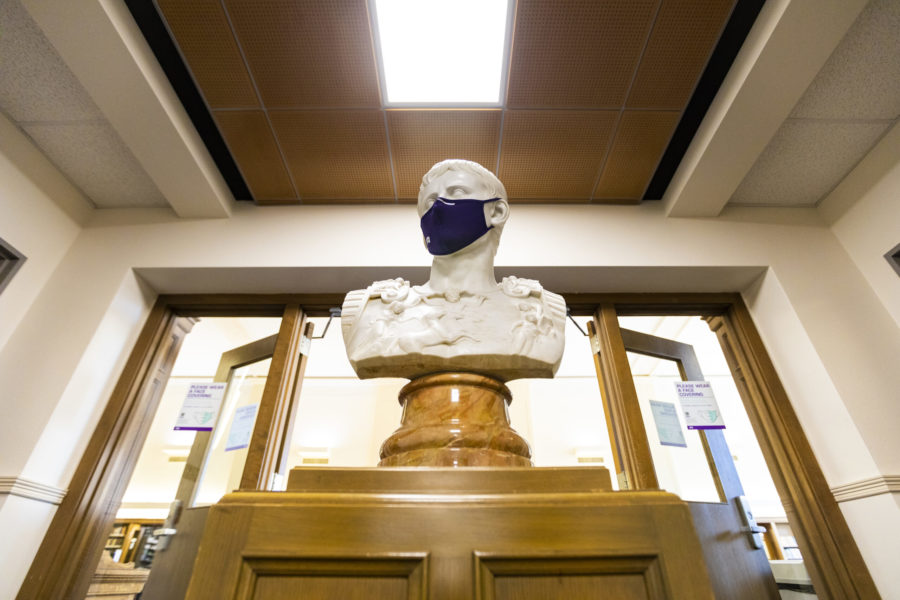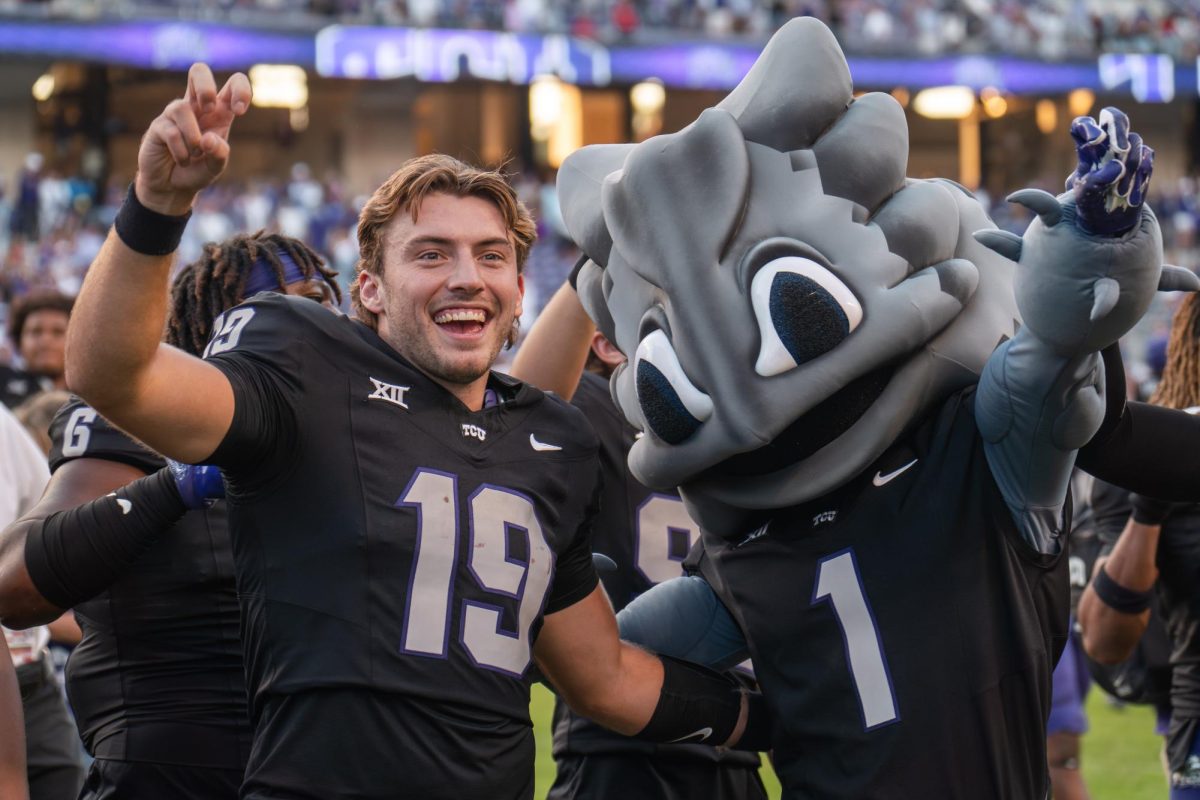TCU students and faculty returned to campus this week under orders to mask up indoors.
The university said it will require face masks to be worn in all indoor campus spaces, such as classrooms, meetings and event spaces, though they may be removed when eating and drinking, as well as utilizing private areas.
Despite the masking decision, TCU announced that individuals are no longer required to physically distance for campus events and activities — both indoors and outdoors — but are encouraged to barring vaccination status.
The indoor mask requirement comes as data from Tarrant County shows community spread cases have reached high levels similar to January and contributed to a total bed occupancy of 90% this week, according to the Tarrant County website.
Visit Protect the Purple for the latest on TCU COVID-19 data.
Coming back to some of the same rules as the previous year with some adjustments, the masking decision and other COVID-19 related updates have had a mixed reception on campus.
“I think it’s a good thing that TCU is requiring masks indoors,” said Victoria Lyons, senior managing people, and organizations major.
Lyons added that universities in other states are mandating the COVID-19 vaccine, but she doesn’t think TCU will do that.
Jalen Chadwick, a sophomore pre-business major, said he is willing to do whatever it is to keep the community safe.
“Although sometimes it gets tiring, I feel it’s not hard to wear a mask,” said Chadwick. “We need to do this as a team, put ourselves aside, and listen to the professionals.”
Regardless of whether TCU lifts the mask requirement before the end of 2021, instructors may continue requiring mask use in their classrooms provided it is clearly stated in the syllabus, according to TCU.
Ofuchinyelu Akpom, a junior computer science and Spanish double major, said she supports leaving instructors’ mask policy to their own discretion.
“I know some professors have vulnerable people at home who can’t qualify for the vaccine and they want to do their best to protect their loved ones,” said Akpom. “Coming in contact with hundreds of scholars and returning home daily during a pandemic is nerve-racking enough.”
Akpom said she is happy to wear a mask for 50 or an hour and 20 minutes to help ensure other’s health.
Amy Roehl, Associate Professor & Interior Design Program Coordinator said the TCU mask mandate will be “a very important component in protecting our TCU community this fall.”
“Having taught 100% in person this past year, I can attest to the fact that when everyone is masked we significantly reduce the spread. Although many of my students were ill with COVID-19 throughout this past year, none of the spread happened in our design studio,” said Roehl.
When asked how her classroom structure will change this fall semester, Roehl explained that the Department of Design will follow all COVID protocols and are “fortunate to have a design studio that features a garage door to enjoy an outdoor space and circulate fresh air.”
To ensure student and faculty safety, TCU has limited classroom enrollment to provide a minimum of six feet for instructors and three feet for students.
Not all students and faculty agreed with the masking decision.
Brian Gates, a junior finance major, started a petition to end the mask mandate at TCU, saying that the “freedom of choice is important for me, and I think TCU students should have that opportunity.”
Gates started a petition because he believes TCU has diminished student’s freedom of choice and they should declare whether or not they want to wear the mask.
Director of Campus Recreation Jay Iorizzo said that the members of the TCU community, students, faculty, staff and visitors will be “the driving force to stop the spread of COVID-19 and its variants.”
Iorizzo added that Campus Recreation & Wellness Promotion plans to operate as they have this past year with increased cleaning protocols and follow university requirements.
TCU is offering a chance to share your status of vaccination via an online form sent out by Chancellor Victor Boschini. The information will help inform decisions regarding testing/tracing efforts, change in protocols and add to the vaccination rate, according to TCU’s website.







